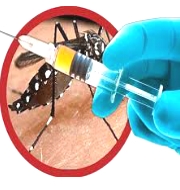Sun Pharma signs deal with ICGEB to develop India’s first dengue vaccine
India’s largest pharmaceutical company Sun Pharma has signed deal with International Centre for Genetic Engineering and Biotechnology (ICGEB) for clinical development Cissampelos pariera (Cipa), India’s first vaccine (drug) for the treatment of dengue.
The partnership between Sun Pharma and ICGEB aims to develop` safe, effective and affordable botanical drug Cipa.
Key Facts
- Under the deal, Sun Pharma will get access to all the intellectual properties (IP) rights of the drug across 17 countries.
- ICGEB will establish assay systems for the development of Cipa for the treatment of dengue infection.
- ICGEB had explored Indian traditional medicine, Ayurveda, to identify plants that could be a source of dengue inhibitory activity
- In its research it was found that an alcoholic extract prepared from Cissampelos pareira Linn from C. pareira plant inhibits the replication of dengue viruses in living cells in culture.
- Besides, alcoholic extract showed antipyretic and anti-inflammatory effects and protected mice against dengue infection.
Significance of the deal
India is dengue-endemic resource-poor country representing 50% of the global population estimated to be at risk of dengue virus. This will be for the first time a vaccine developed entirely in India for a vector-borne disease that has been advanced for clinical development in the country. The C. pareira plant may serve as a basic source for the development of an inexpensive herbal formulation against dengue.
About the International Centre for Genetic Engineering and Biotechnology (ICGEB)
- ICGEB is an international, nonprofit research organization promoted by the United Nations Industrial Development Organization (UNIDO). It is part of the United Nations System.
- It was established as a special project of UNIDO, but it became fully autonomous in 1994 and now counts over 60 Member States.
- It provides a scientific and educational environment of highest standard and conducts innovative research in life sciences for the benefit of developing countries.
- It strengthens the research capability of its Members through training and funding programmes and advisory services.
- It also represents a comprehensive approach to promoting biotechnology internationally.
Month: Current Affairs - September, 2016


